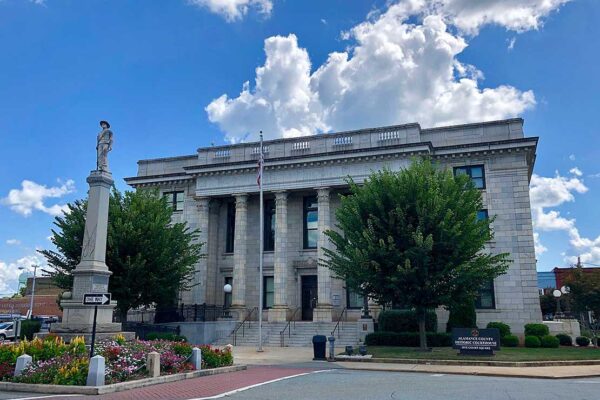Lea Allison is a 30-year-old Alamance County resident and mother to a 6-year-old daughter. She has been living with relatives because she cannot afford to live on her own, but was about to start a new job that she hoped would provide her and her daughter with financial stability.
Lea’s plans came to an abrupt halt when she was arrested and locked in an Alamance County, North Carolina jail on a $3,500 bond. Although she has not been found guilty of a crime, she will remain behind bars because she cannot afford to pay for her freedom. Instead of starting her new job, Lea is sitting in the Alamance County jail — cut off from her family and forced to sleep on the floor.
Right now, thousands of people in North Carolina — who are presumed innocent because they have not been convicted of a crime — are locked in jail while they wait for their day in court because they do not have the money necessary to pay the bail that would allow them to go home to their jobs and families. This unjust cash bail system disproportionately impacts people of color, violates people’s rights, separates families, and fuels the mass incarceration crisis.
Together with Civil Rights Corps, we filed a lawsuit this week on behalf of Lea Allison and two other people who are incarcerated in the Alamance County jail and cannot afford to pay the bail amount set by a court official who showed no consideration to their ability to pay and provided no attorney during the bail hearing.
Our lawsuit asks the court to take immediate action to end Alamance County’s unconstitutional bail practices, ensure that no one is held in the county jail solely because they are unable to pay their bail, and release those currently locked up because they are poor. The lawsuit also claims that the county has violated the right to counsel because poor people accused of crimes are not provided attorneys to represent them when their freedom is at stake.
In this country, we are all supposed to be treated as innocent until proven guilty. But under the cash bail system, a person’s freedom too often depends on how much money they have in their bank account. Each year, more than 10 million people in the U.S are locked into local jails, and as of 2015, there were roughly 700,000 people locked up on any given day. Most of them have not been convicted of a crime. Bail systems like Alamance County’s result in wealth-based detention that means that people who are poorer, often people of color, remain locked up while awaiting trial.
For too long, North Carolinians have had two criminal legal systems: one for the rich and one for the rest of us. These wealth-based pretrial detention schemes that target the poor violate the Constitution and inflict tremendous harm on peoples’ lives. Spending just three days behind bars puts a person at risk of losing their job, home, and custody of their children. Alamance County locks people up before their trial at an alarming rate, requiring secured bonds for nearly 90 percent of all people charged with a crime, one of the highest rates in the state.
We sued to put an immediate stop to the destructive practice in Alamance County of criminalizing poverty and we are putting officials in North Carolina and across the country on notice: current bail practices are unconstitutional, violate people’s rights, and must end.

